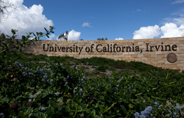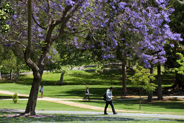|
The following is the Irvine Division of the Academic Senate Regulation
A465, Undergraduate Final Exam Policy.
(A) General Requirements
Final assessments are required in all undergraduate courses, except as provided elsewhere in this regulation. Structure, expectations, and timing should be communicated to the students in the course syllabus from the first day of instruction. Assessment structure should be consistent with the learning outcomes of the course. Synchronous examinations in non-laboratory/studio courses may not exceed three hours’ duration.
(B) Scheduling
Synchronous final examinations must be given at the time announced in the Schedule of Classes. Exceptions must be approved by the instructor’s department or academic unit, and only for sound educational reasons. If a student’s course schedule cannot accommodate a change in the final examination time, the instructor who is not adhering to the standardized final exam schedule is responsible for making accommodations to allow the student to take the exam at the regularly scheduled time, or at a mutually preferable time. Courses that use asynchronous methods for final assessments must make such assessments due during final examination week. Exceptions to this can be made during course creation by the Subcommittee on Courses & Continuing, Part-Time, & Summer Session Education (SCOC) or by the instructor’s department or academic unit.
(C) Laboratory or Studio Courses
Examinations are normally not required in laboratory or studio courses or their equivalent. At its option, the department or academic unit may require a final examination in any laboratory course. It is recognized that many laboratory or studio courses cannot hold exams based on the standard exam schedule. Laboratory or studio exams may be held during class time of the final week of instruction. As described above, this must be communicated to the students on the first day of instruction via the course syllabus.
(D) Standard Examination Substitutes
Instructors may utilize various forms of assessment in their courses. Examples include but are not limited to a final examination (take home or in person), an oral examination, project, or one or more term papers. The method of examination must be announced in the syllabus by the first day of instruction. If an asynchronous assessment is not assigned until the week designated for final examinations, it should require no more than three hours to complete. Any final assessment requiring more than three hours to complete should be assigned before the final examination week to allow students sufficient time to complete it.
(E) General Examination in Major
At the end of the quarter in which a student is expected to graduate, a student may be examined in the major field by the department (or academic unit), the department (or academic unit) may excuse the student from final examination in courses offered by the department (or academic unit) during that quarter, and, with the approval of SCOC, the department (or academic unit) may assign a credit value to such general examination.
Last Revision-May 6, 2021
|





